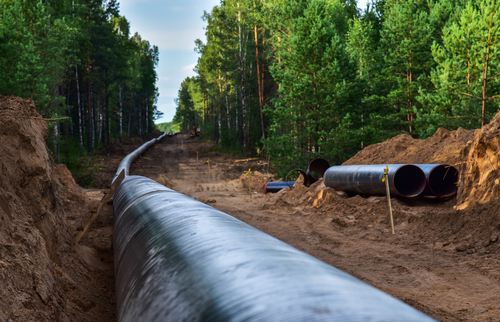
A new report from the Institute for Energy Research (IER), which examines the environmental quality of the major oil-producing countries, finds that efforts to restrict oil and gas production in the United States could “yield perverse impacts on the global environment.”
The report, The Environmental Quality Index: Environmental Quality Weighted Oil and Gas Production, argues that any reductions or limitations on domestic U.S. oil production will simply shift production to other oil-producing countries to meet demand – countries where the environmental standards are far lower than they are in the U.S.
The paper, authored by David Kreutzer and Paige Lambermont, quantifies that environmental gap by creating an environmental quality score, weighted by production, for oil and gas production in countries around the world.
“The results show that purely as a matter of environmental protection, replacing U.S. domestic production with foreign supply would be an overwhelmingly negative tradeoff,” the report states. “By maintaining its position as the world’s largest conventional energy provider, the U.S. can continue to satisfy its own energy needs and contribute to the economic growth of the developing world as well. Doing so is not only good for our economy and the world’s economy, but also better for the world’s environment than the alternative.”
To determine the environmental quality score for oil-producing countries, the researchers used the Environmental Performance Index (EPI) produced by Yale University. The EPI for each country is scored using 40 performance indicators, ranking countries on climate change performance, environmental health, and ecosystem vitality, among other metrics.
“Though the index does not directly measure the impact of oil production, we use it as a proxy under the assumption that the internal demand for a country’s environmental quality is broad based. These national EPI scores are then multiplied by national production volumes to create a production-weighted environmental quality score for a group of countries,” the authors write.
It found that of the 20 largest oil and natural gas-producing nations, the average EPI score, weighted by liquid fuels production, was 39. In the U.S., the average EPI score is 51.1, which is some 24 percent higher than average. The score for the U.S. ranks among the highest, with only the United Arab Emirates, Norway, and the United Kingdom having higher scores. However, none of those three countries produce even one quarter of the petroleum that the U.S. does.
“Indeed, all oil production from countries scoring higher on environmental quality amounts to only 35.7 percent of U.S. production, and that from gas-producing countries is only 33.4 percent of U.S. production. The sheer size of U.S. production combined with its excellent environmental standards means that U.S. production disproportionately reduces the environmental harms of oil and gas production on a global scale,” the authors said.
On the other side, among the major gas and oil producing countries, Canada was slightly lower at 50, while Saudi Araba and Russia were both around 27, Iran was 34, Iraq was 27, Brazil was 43, China was 28, Mexico was 45, Kuwait was 42, and Qatar was 33, to name a few.
“Perhaps even more troubling than potentially shifting production to countries with lower environmental standards is the possibility that constraining U.S. production shifts demand, wealth, and power to countries with much worse records on human freedom,” the authors wrote.
The average Freedom House Global Freedom score of the average 20 largest producers was just 34, compared to the U.S. at 83. The only countries with a higher freedom score than the U.S. were Norway at 100, Canada at 98, and the U.K. at 93. On the other end, Russia had a score of 19, China was at 9, and Saudi Arabia was at 7.
“Oil and natural gas production isn’t a monolith. Production in one location does not have the same environmental, health, or social impacts as that of production elsewhere. There is a stark difference between the environmental impacts of production in countries with high environmental standards like the U.S., Canada, the United Kingdom, or Norway, and those countries that either don’t have these standards at all, or where widespread corruption leads to the de facto nonexistence of such standards. A barrel of oil produced in Saudi Arabia or Venezuela rather than the U.S. on net is more negatively impactful to the global environment,” the authors conclude.
The authors say this should be part of the policy discussion in developed economies.